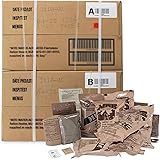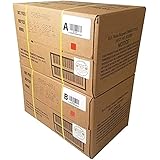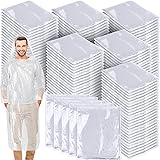1. Water Acquisition and Purification
Understanding Water Sources
When I first delved into prepping, I quickly realized that water is life. Knowing where to find clean water sources can make all the difference. Natural springs, rivers, and even rainwater can provide invaluable water supplies. I learned to locate these sources by studying maps and observing the landscape. Remember, what’s vital is that water should be easily accessible.
Once you’ve identified potential sources, get familiar with local regulations. Not all water sources can be tapped freely, especially in urban areas. I found that understanding these local laws not only keeps you compliant but also ensures you can make the best decisions in a crisis. Talk to locals; they’ll often have insights about reliable sources. It’s all about building that community network.
One vital tip I learned is to gauge water quality. Sometimes, it looks clean, but trust me, appearances can be deceiving. Always test water if possible, and carry portable water-testing kits. Cleaner sources often lead to healthier lives, especially during emergencies.
Purification Techniques
Apart from finding a water source, you need to know how to purify it. I experimented with several techniques: boiling, chemical disinfection, and filtration. Boiling is straightforward but can take a lot of resources if you’re frying up big batches. That’s where I found chemical methods helpful. Just a few drops of bleach can turn murky water into something drinkable.
Mechanical filtration systems are also fantastic. I invested in a portable filter; it’s lightweight and can handle a good amount of water each day. One thing to remember is to always maintain it diligently. Regular maintenance is everything—clean out those filters; your future self will thank you!
Lastly, I learned about solar disinfection. Lay out some clear bottles in the sun for a day. I was astonished by how effective this method could be! It’s a free and natural way to ensure your water’s safe. Who knew prepping could connect you with nature in such an unexpected way?
Storage Solutions
Once you have your water source and purification methods down, the next step is storing that precious liquid. I’ve tried several storage containers, and honestly, food-grade barrels are my go-to. They’re durable, safe, and, most importantly, they keep water fresh for prolonged periods. Just make sure to clean them before every use; it’s worth it.
Another tip is to utilize space efficiently; that’s a game changer. I learned how to hide my water supplies in places that didn’t get a lot of traffic—think attics or under beds. It took a bit to find the right spots, but it’s all about being resourceful!
== > What if ... Get a FREE Subscription to PREPARE
Lastly, rotate your supplies. It’s easy to draw up a big stash and forget about it. Every few months, just swap out the old water for fresh. This way, you’re always ready and never surprised by stagnant water. Trust me; there’s nothing worse than prepping and then having to toss bad supplies!
2. Food Security and Preservation
Growing Your Own Food
If there’s one skill that has truly empowered me as a prepper, it’s learning to grow my own food. When I started, I had no idea what I was doing. I threw some seeds in the ground and hoped for the best. Sure, some things didn’t sprout, but as I kept on experimenting, I began to understand local growing seasons and what plants flourished in my area.
One piece of advice I picked up is to start small. Containers can be your best friend if you don’t have a lot of space. I started with a few herbs and tomatoes, and honestly, that did wonders for my confidence! With time, I expanded to a small garden—the satisfaction of harvesting your own veggies is unreal.
Community gardens are another great option. They’re everywhere these days, and you get to learn from seasoned gardeners. It’s an excellent opportunity to network while reaping the benefits of joint labor. Plus, who doesn’t love sharing homegrown cucumbers with a neighbor?
Food Preservation Methods
After all that hard work growing food, you need to ensure it lasts. My initial method was canning, which I quickly learned can be a bit tricky, but incredibly rewarding. Once you get the hang of it, it feels magical to see shelves stocked with your own preserved goods. I’ve made jams, pickles, and even stews!
Dehydration is another skill I embraced. It’s so easy and perfect for preserving fruits and vegetables without the fuss of canning equipment. You just slice ’em, dry ’em, and boom—you’ve got healthy snacks down the line. I can’t tell you how satisfying it is to munch on crispy dehydrated apples in the winter!
And then there’s fermentation. Oh boy, that’s a fun ride! Fermented foods have numerous health benefits. Kvass, sauerkraut, kimchi—they’re all deliciously rich in probiotics and easy to make at home. My friends always tease me for having “fermentation experiments” in my kitchen, but you can call me a ‘fermentation fiend’ now!
Emergency Food Supplies
Have you ever heard of long-term food storage? It’s essential in any prepping scenario. I got a bunch of freeze-dried meals and made sure to have a good stockpile. You don’t always know when you might have to rely on these meals, but they give me peace of mind, knowing I have something safe set aside.
Another thing I discovered is that not all food supplies are created equal. While big buckets of rice might seem appealing, make sure to think variety! I stock up on beans, grains, and even spices. That’s the secret sauce to making bland emergency rations a bit tastier. Plus, it keeps your morale high!
And let’s not forget MREs (Meals Ready-to-Eat). They’ve got a bad rap, but honestly, I’ve had some decent ones. Just ensure they’re not expired and stored correctly. I’ll sometimes grab a few to keep in my go-bag; they’re lightweight and fill me up when I’m on the move!
3. Self-Defense and Security
Personal Safety Techniques
One thing that often gets overlooked in prepping is personal safety training. I didn’t just want to be prepared in a survival sense; I also wanted to ensure I could protect myself if it came to that. I took a few self-defense classes, and honestly, they were eye-opening! I learned basic moves and how to stay aware of my surroundings. It’s like you build up a sixth sense over time!
Another crucial tip I picked up was how to handle my emotions during a crisis. Staying calm is not always easy, but I practiced grounding techniques, and it worked wonders. Even the best self-defense techniques might be useless if you panic or freeze. The calm approach keeps you sharp and collected.
Always, always trust your gut. If something feels just ‘off’, it probably is. Learning what to look for has made me much more confident. I now walk with a heightened sense of awareness and trust in myself. It’s like having an internal alarm system!
Creating a Secure Home Environment
Building a safe home base became a priority for me once the prepping journey started. I dived deep into security systems—cameras, alarms, the works! Initially, it seemed daunting, but I slowly started piecing together a comprehensive plan. I discovered numerous options tailored for different budgets. Who doesn’t love a little DIY project?
Another thing worth mentioning is barriers. Fencing, gates, even landscaping can help secure your space. When I added thorny bushes near my windows, I felt like a security genius! Those little adjustments truly enhance your peace of mind.
And let’s talk about communication! It’s essential to have a plan with your fellow family members. We set up a simple code so everyone knows what to do in case of an emergency. Having that mutual understanding was a game changer. We’re all on the same page, and it makes dealing with crises a lot less chaotic. Trust me, keep the lines open!
Learning About Weapons
Now, let’s dive into a hefty topic: weapons. I think it’s incredibly valuable for preppers to know how to handle firearms safely. I enrolled in a few firearms safety courses, and they were enlightening. Knowing the laws surrounding gun ownership is just as critical as using one effectively.
After understanding the basics, I made it a point to practice regularly. I visited shooting ranges and even participated in friendly competitions. The key here is familiarity; the more comfortable one feels, the better prepared they become in a crisis. Plus, you gain a community of like-minded individuals!
And let’s not forget about non-lethal self-defense methods too. I carry pepper spray as an extra precaution. It’s lightweight and has given me comfort knowing that I have options. Finding a balance between different methods of self-defense can suit various situations, and it’s all about what feels comfortable for you!
Get Preparedness and Self-Reliance Tips. Subscribe Now!
4. First Aid and Medical Training
Basic First Aid Skills
Honestly, understanding first aid is one of the most crucial skills I picked up as I prepped. You never know when an injury might arise. I took a basic first aid course and learned how to treat cuts, bruises, and much more. Having those skills feels empowering—you’re not just waiting for someone to come help but can actually step in when needed.
First aid kits also became a staple in my household. I went through a few online checklists and built my own based on what I thought would be the most useful. Band-aids, antiseptic wipes, gauze—you name it! I even included a few over-the-counter medications like ibuprofen and antihistamines. It all adds up, and it feels good to be prepared!
Remember to refresh your training regularly! I set a calendar reminder to go over my skills. Practicing makes sure when the moment comes, I’m not fumbling around. It’s like riding a bike; those skills need to stay fresh in your mind.
Advanced Medical Training
If you feel comfortable with the basics, consider taking more advanced medical courses. I ventured into wilderness first aid, where I learned to treat injuries in remote settings. It was incredibly valuable, especially since the skills differ from urban environments. You roll with what you have, and adaptability is everything!
Developing an understanding of common medical scenarios can truly prepare you for future emergencies. From learning about CPR to understanding the signs of a heart attack, every bit of knowledge hands you more confidence. I still recall my first practice CPR session; it’s vital to practice skills regularly!
Another component I found useful is learning how to maintain a medical supply kit tailored to real-world scenarios. I stock up on antibiotics, bandages, and ensure my supplies are all up to date, just like with food or water. Keeping a close watch on expiration dates is a must in this department!
Health and Nutrition Knowledge
Health goes beyond immediate care; understanding nutrition is equally beneficial. Knowing how to manage proper diets, especially during stressful times, helps ensure our bodies are ready for potential scenarios. When I began prepping, I looked into balanced diets and nutrient-rich foods to keep myself and my family healthy.
I even took an online nutrition course. Not only did I learn about essential vitamins and minerals but how to cook with whole foods. Making healthy choices keeps my energy levels high and reduces the chances of ailments creeping in. Who knew following a proper diet could be a prepper skill?
Additionally, I began reading about herbal medicine. Having a basic understanding of herbs and their healing properties can supplement traditional medicine effectively. Not only is it fascinating, but it also embraces a back-to-nature vibe! Mixing old knowledge with contemporary practices is empowering.
5. Communication and Networking
Building Community Connections
One of the more surprising aspects of my prepping journey was realizing how essential a sense of community is. I actively sought out local prepper groups and met people who, like me, wanted to share skills and knowledge. It’s wonderful to exchange ideas, and I now have a support network that I can rely on if anything happens.
Attending community events is also invaluable. Not only do I get to meet others, but I also gain a deeper understanding of local issues. Communication is key; sharing concerns and insights can lead to solutions that benefit everyone. Together, we’re stronger!
Don’t underestimate social media. I joined online groups that focus specifically on prepping. I’ve learned so much through shared experiences! Online platforms create an awareness of diverse methods, and it’s great to connect with like-minded individuals from across the globe.
Information Gathering
In a crisis, accurate information is more important than ever. I learned how to gather reliable sources and how to distinguish facts from misinformation. When something develops, it becomes crucial to stay informed and make decisions based on solid evidence. News cycles can be overwhelming, so I’ve started consolidating trustworthy news outlets into my daily routine.
Additionally, I’ve established a network of people in different fields—medical professionals, survival experts—you name it! This has been invaluable when looking for specialized information. If you have access to experts, don’t hesitate to reach out; we’ve all got something to offer!
I even use old-school methods, like journals, to document local events or weather changes. As someone who likes keeping organized records, it’s fascinating to look back at how circumstances unfold over time. It makes it easier to predict future events and prepare accordingly.
Emergency Communication Plans
Every prepper should have a plan for staying in touch during emergencies. I found it helpful to set up a communication plan with family members. We’ve agreed on meeting points, check-in times, and alternative methods of communication in case one falls through. Regular drills keep us sharp!
I also learned about the importance of walkie-talkies and ham radios. In times of crisis, cell phones can fail. Having backup communication tools gets essential information flowing. I even took a course on using ham radios, and now I’m proficient! Connecting that way has opened another layer of community for me.
The sentiment is clear: communication can’t be overlooked in prepping. Having these skills empowers my family and me to respond cohesively, making it less stressful when faced with emergencies. It’s all about proactive preparation—don’t wait for a crisis to create your plans!
Conclusion
Wow, what a journey! Learning these 15 essential skills has drastically changed how I view and navigate the world as a prepper. With each skill mastered, I’m not only preparing for potential emergencies but also improving my daily life. From self-defense to food security, these lessons have become integral parts of who I am.
Don’t be daunted; remember, everyone progresses at their own pace. Embrace the learning process and connect with others along the way. These experiences are incredibly rewarding, and soon enough, you’ll feel a sense of empowerment, knowing that you can face whatever comes your way.
So, grab those seeds, take a first aid course, and reach out to your community. The future is uncertain, but with these skills, we can tackle anything together!
Frequently Asked Questions
1. What are the most important skills a prepper should focus on?
The most important skills include water acquisition, food preservation, self-defense, first aid, and communication. Mastering these gives you a solid foundation in prepping.
2. How can I start growing my own food?
Start small by planting easy-to-grow vegetables or herbs in containers. Learn about your local growing season and soil type to determine what works best. Over time, you can expand into a larger garden.
3. What should I include in my first aid kit?
Your first aid kit should have band-aids, antiseptic wipes, gauze, adhesive tape, ibuprofen, allergy medication, and any personal medications you might need. Tailor it to your family’s specific needs.
4. How can I build a prepper community?
Look for local prepper groups online, join community events, or participate in workshops. Social media platforms also host many prepping communities where you can learn and share.
5. What is the best way to stay informed during an emergency?
Gather information from reliable news sources, maintain a network of knowledgeable individuals, and consider alternative communication methods like ham radios or walkie-talkies to stay connected.






